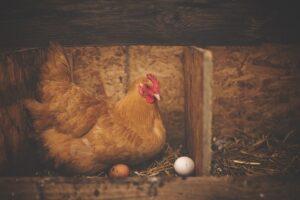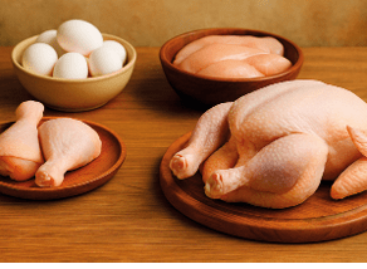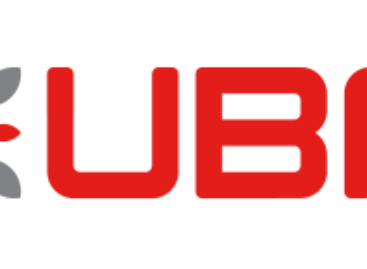The future of European production is threatened by the unlimited influx of Ukrainian poultry meat and eggs
The import of Ukrainian poultry meat and eggs must be stopped, because the products arriving in the European Union in unlimited quantities not only threaten the future of EU production, thus Europe’s self-sufficiency in the long term, but are also worrisome from a food safety point of view, the National Chamber of Agrarian Economy and the Poultry Product Council point out. While the actors of the EU poultry sector produce in compliance with strict food safety, animal health and animal welfare rules, the EU regulations do not apply to Ukrainian farmers.

(Photo: Pixabay)
Uncontrolled flow of Ukrainian poultry meat and eggs into the European Union. The current actions of the European Commission regarding the tariff and quota on Ukrainian imports have resulted in a significant increase in Ukrainian imports in recent months. The EU quota in force before liberalization limited the import of poultry meat from Ukraine to 90,000 tons per year. However, since the abolition of tariffs and quotas, several times that number have arrived in the community from the war-torn country. According to EU statistics, in June 2022, i.e. one year since the beginning of liberalization, the EU imported more than 218,000 tons of poultry meat from Ukraine. This had a significant impact on the price of chicken breast fillets in the EU, putting the entire EU poultry market at risk.
In the case of eggs, the numbers are even more hair-raising
In 2022, four times the amount of table eggs arrived from Ukraine compared to 2021, and in March 2023, the Union imported nearly 100 million Ukrainian table eggs. This means that almost as many Ukrainian eggs arrived on the common EU market in March alone as in the whole of 2021. In addition, the increase in imports has not lost its strength in recent months, in the first half of this year we imported 204 percent more eggs from Ukraine than a year earlier. The ever-increasing import pressure has significantly narrowed the market for Hungarian and European producers, so that the products do not meet EU food safety, animal welfare and environmental protection standards.
There is no reason to make an exception
According to the position of the National Chamber of Agriculture and the Poultry Product Council, the war cannot be a reason for the EU to grant Ukraine a political discount that allows products that do not meet the EU’s regulations and requirements to enter the community. Moreover, with the measure, the EU does not support the Ukrainian people, but some oligarchs. All legislation that is mandatory for EU producers should also be mandatory and controlled for all imported products arriving in the EU. This is expected not only for fair and equal competition, but also for food safety and consumer interests. Food that does not comply with European standards cannot be allowed to destroy European production!
The poultry sector is of strategic importance both from an economic and food point of view
In the EU’s food system, the sector boasts an estimated production value of 38 billion euros and annual exports exceeding 2 billion euros, which provides work and a livelihood for more than 370,000 people. Chickens, turkeys and ducks are raised to a high standard in 25,000 family farms across Europe. It is also important for them that the European Commission extends the import restrictions introduced in the case of grain to poultry meat and eggs as soon as possible. If it is not possible to export Ukrainian products from the internal market in the following agricultural years, then the structure of EU arable crop production and the poultry sector will be permanently and substantially transformed. This will quickly, but painfully for us, remove the agricultural obstacle to Ukraine’s EU integration. The border countries will suffer the political consequences, and the economic benefits will be enjoyed by those investors who are already looking at Ukrainian investment opportunities.
The rise of Ukrainian products can also have painful consequences for the domestic poultry sector
This “fodder hidden in leather” causes terrible damage to European, including domestic production. Domestic poultry farmers are still feeding feed purchased at a high price last year, and due to the European oversupply, they are unable to validate the high production costs in the transfer prices. The performance of the sector has increased dynamically in the past decade and, in addition to the internal supply exceeding domestic needs by 30-40 percent, it can be considered one of the agricultural sectors with outstanding export performance. The poultry product line provides a livelihood for tens of thousands of families in Hungary.
NAK
Related news
EU poultry meat rules are changing: the 12-week limit for “free-range” labeling is being relaxed during a pandemic
🎧 Hallgasd a cikket: Lejátszás Szünet Folytatás Leállítás Nyelv: Auto…
Read more >Avian influenza has appeared in a new farm in Csongrád-Csanád County
🎧 Hallgasd a cikket: Lejátszás Szünet Folytatás Leállítás Nyelv: Auto…
Read more >UBM may continue its international expansion
🎧 Hallgasd a cikket: Lejátszás Szünet Folytatás Leállítás Nyelv: Auto…
Read more >Related news
Festival buzz at the 60th anniversary EuroShop trade fair
🎧 Hallgasd a cikket: Lejátszás Szünet Folytatás Leállítás Nyelv: Auto…
Read more >Historic price reduction at ALDI
🎧 Hallgasd a cikket: Lejátszás Szünet Folytatás Leállítás Nyelv: Auto…
Read more >A stable compass in the Hungarian FMCG sector for 20 years
🎧 Hallgasd a cikket: Lejátszás Szünet Folytatás Leállítás Nyelv: Auto…
Read more >








